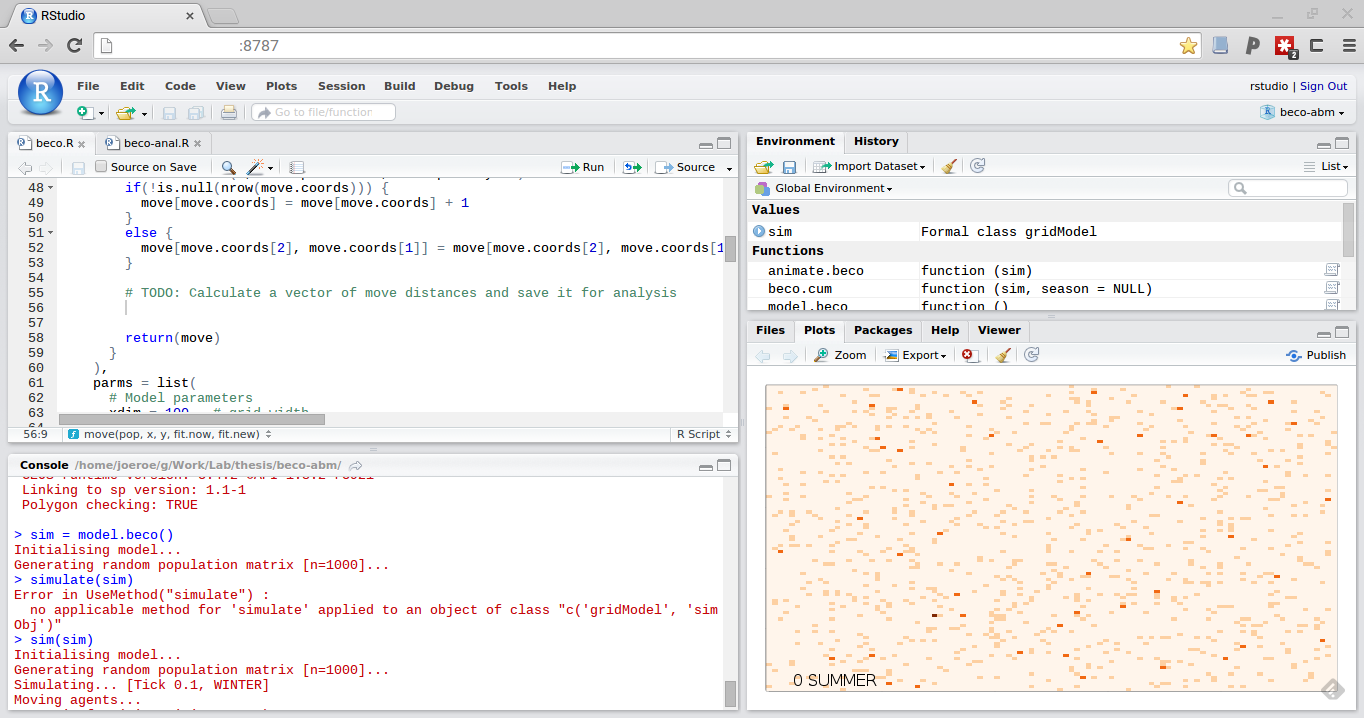

R, as with other programming languages, uses functions for performing different tasks. If you’re interested in specializing your Rstudio window even further, you can create custom editor themes (see this Rstudio blog for a useful tutorial). Using a dark palette in RStudio is especially useful during long work sessions.
R and r studio code#
Note we included example code to illustrate syntax highlighting. For example, an RStudio window using the Modern theme and the Ambiance Editor theme is shown in Figure 2.2. We generally find that Editor themes with a dark background and mellow colored syntax highlighting is easier on the eyes. You can also switch the Editor font and specify the Editor theme from a suite of options. To switch between themes, click on the Tools bar at the top of the window, click on the Global Options tab, and then click on the Appearance tab where you will see the option to switch between three RStudio themes: Modern, Classic, and Sky. RStudio provides great flexibility in changing themes and code highlighting to customize the RStudio interface. Although we will use RStudio, most of what is presented in this book can be accomplished in R (without an added interface) with few or no changes.įigure 2.1 shows the default Rstudio theme and layout. We will use the RStudio IDE, which according to its developers “is a powerful productive user interface for R.” 6 RStudio is widely used, it is used increasingly in the R community, and it makes learning to use R a bit simpler. At minimum, an IDE typically consists of a source code editor and build automation tools.
R and r studio software#
These interfaces are used to facilitate software development.

Generally such interfaces are referred to as integrated development environments (IDE). Several enhanced interfaces for R have been developed. A new user can (relatively) quickly gain enough skills to obtain, manage, and analyze data in R.It has an incredible variety of contributed packages.R is under constant and open development by a diverse and expert core group.It is one of, if not the, most widely used software environments in data science.This book focuses on R for several reasons: Each has strengths and weaknesses, and often two or more are used in a single project. Various statistical and programming software environments are used in data science, including R, Python, SAS, C++, SPSS, and many others. 16 Solutions to Selected Practice Problems.15.6 A Summary of Useful graphics Functions and Arguments.14.3 Fourier Transforms and Spectrograms.14.1 Introduction to Digital Signal Processing.13.2 Difficulties of Working with Large Datasets.9.4.2 Michigan Campgrounds Server Logic.9.4 More Advanced Shiny App: Michigan Campgrounds.8.7.2 Logical, Index, and Name Subsetting.8.7.1 Fetching and Cropping Data using raster.8 Spatial Data Visualization and Analysis.7.2 Programming: Conditional Statements.6.2 Importing data with missing observations.4.7.2 Logical Subsetting and Data Frames.4.7.1 Modifying or Creating Objects via Subsetting.4.5.1 Accessing Specific Elements of Lists.4.4.1 Accessing Specific Elements of Data Frames.4.1.2 Accessing Specific Elements of Vectors.3.4.1 Creating and processing R Markdown documents.

R and r studio how to#


 0 kommentar(er)
0 kommentar(er)
